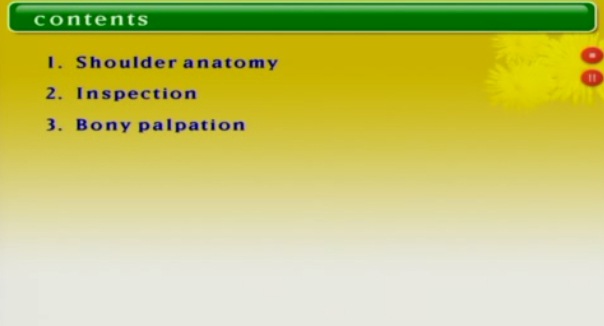Background: Inflammatory bowel disease (IBD) is a disease of unknown origin that causes chronic inflammation of the intestines and is classified as either ulcerative colitis or Crohn’s disease. The incidence and prevalence of IBD in Korea have been ...
http://chineseinput.net/에서 pinyin(병음)방식으로 중국어를 변환할 수 있습니다.
변환된 중국어를 복사하여 사용하시면 됩니다.
- 中文 을 입력하시려면 zhongwen을 입력하시고 space를누르시면됩니다.
- 北京 을 입력하시려면 beijing을 입력하시고 space를 누르시면 됩니다.
https://www.riss.kr/link?id=A107840173
-
저자
양석균 (울산대학교)
- 발행기관
- 학술지명
- 권호사항
-
발행연도
2021
-
작성언어
Korean
-
주제어
Inflammatory bowel diseases ; Epidemiology ; Diagnosis ; Treatments ; Prognosis ; 염증장질환 ; 역학 ; 진단 ; 치료 ; 예후
-
등재정보
KCI등재,SCOPUS,ESCI
-
자료형태
학술저널
-
수록면
572-577(6쪽)
-
KCI 피인용횟수
0
- DOI식별코드
- 제공처
- 소장기관
-
0
상세조회 -
0
다운로드
부가정보
다국어 초록 (Multilingual Abstract)
Background: Inflammatory bowel disease (IBD) is a disease of unknown origin that causes chronic inflammation of the intestines and is classified as either ulcerative colitis or Crohn’s disease. The incidence and prevalence of IBD in Korea have been rapidly increasing during the past three decades. This paper describes the current status of IBD in Korea.
Current Concepts: Compared with western countries, genotypes and phenotypes of IBD in Korea demonstrate some distinct features, which may have an impact on the diagnosis, treatment, and prognosis of IBD. We continue to experience some difficulties in making early and accurate diagnoses of IBD in Korea due to a low awareness of the disease and the high prevalence of infectious enterocolitis, such as intestinal tuberculosis, which needs to be differentiated from IBD. The treatment of IBD can be influenced by differences in genetic, environmental, and social factors. NUDT15 variants limit the use of thiopurines. Infectious diseases, including tuberculosis, hepatitis B, and cytomegalovirus colitis, are usually more common in Asia than in western countries and can adversely influence the management of IBD. Biologic agents, which have changed the treatment paradigm of IBD, are equally efficacious in Asian patients as in Western patients. However, their use is limited due to a strict Korean government health insurance reimbursement policy. The prognosis of ulcerative colitis in Korea may be better than that in western countries, as indicated by a lower colectomy rate. However, this difference is less distinct in Crohn’s disease.
Discussion and Conclusion: IBD in Korea differs from that in western countries in many respects. With rapid increase in the prevalence of IBD in Korea, medical costs for IBD are expected to become a significant financial burden. Koreans need to be prepared for this eventuality.
참고문헌 (Reference)
1 이광재, "염증성 장질환의 약물요법" 대한의사협회 58 (58): 57-63, 2015
2 Kim JW, "Trends in health-care costs and utilization for inflammatory bowel disease from 2010 to 2014 in Korea : a nationwide populationbased study" 33 : 847-854, 2018
3 Cao Q, "Thiopurine methyltransferase gene polymorphisms in Chinese patients with inflammatory bowel disease" 79 : 58-63, 2009
4 Lee HS, "The risk of colorectal cancer in inflammatory bowel disease : a hospital-based cohort study from Korea" 50 : 188-196, 2015
5 Leong RW, "The epidemiology and phenotype of Crohn's disease in the Chinese population" 10 : 646-651, 2004
6 Seo H, "Temporal trends in the misdiagnosis rates between Crohn's disease and intestinal tuberculosis" 23 : 6306-6314, 2017
7 Park SH, "Severe disease activity and cytomegalovirus colitis are predictive of a nonresponse to infliximab in patients with ulcerative colitis" 58 : 3592-3599, 2013
8 Hong SN, "Risk of incident Mycobacterium tuberculosis infection in patients with inflammatory bowel disease : a nationwide population-based study in South Korea" 45 : 253-263, 2017
9 Lee HS, "Risk factors and clinical outcomes associated with cytomegalovirus colitis in patients with acute severe ulcerative colitis" 22 : 912-918, 2016
10 Soo-Kyung Park, "Prevention and management of viral hepatitis in inflammatory bowel disease: a clinical practice guideline by the Korean Association for the Study of Intestinal Diseases" 대한장연구학회 18 (18): 18-33, 2020
1 이광재, "염증성 장질환의 약물요법" 대한의사협회 58 (58): 57-63, 2015
2 Kim JW, "Trends in health-care costs and utilization for inflammatory bowel disease from 2010 to 2014 in Korea : a nationwide populationbased study" 33 : 847-854, 2018
3 Cao Q, "Thiopurine methyltransferase gene polymorphisms in Chinese patients with inflammatory bowel disease" 79 : 58-63, 2009
4 Lee HS, "The risk of colorectal cancer in inflammatory bowel disease : a hospital-based cohort study from Korea" 50 : 188-196, 2015
5 Leong RW, "The epidemiology and phenotype of Crohn's disease in the Chinese population" 10 : 646-651, 2004
6 Seo H, "Temporal trends in the misdiagnosis rates between Crohn's disease and intestinal tuberculosis" 23 : 6306-6314, 2017
7 Park SH, "Severe disease activity and cytomegalovirus colitis are predictive of a nonresponse to infliximab in patients with ulcerative colitis" 58 : 3592-3599, 2013
8 Hong SN, "Risk of incident Mycobacterium tuberculosis infection in patients with inflammatory bowel disease : a nationwide population-based study in South Korea" 45 : 253-263, 2017
9 Lee HS, "Risk factors and clinical outcomes associated with cytomegalovirus colitis in patients with acute severe ulcerative colitis" 22 : 912-918, 2016
10 Soo-Kyung Park, "Prevention and management of viral hepatitis in inflammatory bowel disease: a clinical practice guideline by the Korean Association for the Study of Intestinal Diseases" 대한장연구학회 18 (18): 18-33, 2020
11 김정민, "Pathogenesis and clinical perspectives of extraintestinal manifestations in inflammatory bowel diseases" 대한장연구학회 18 (18): 249-264, 2020
12 Katsuyoshi Matsuoka, "NUDT15 gene variants and thiopurine-induced leukopenia in patients with inflammatory bowel disease" 대한장연구학회 18 (18): 275-281, 2020
13 Cha JM, "Long-term prognosis of ulcerative colitis and its temporal changes between 1986 and 2015 in a population-based cohort in the Songpa-Kangdong district of Seoul, Korea" 69 : 1432-1440, 2020
14 Julajak Limsrivilai, "Intestinal tuberculosis or Crohn’s disease: a review of the diagnostic models designed to differentiate between these two gastrointestinal diseases" 대한장연구학회 19 (19): 21-32, 2021
15 Puri AS, "Infliximab-induced tuberculosis in patients with UC : Experience from India-a country with high prevalence of tuberculosis" 32 : 1191-1194, 2017
16 Morita N, "Incidence and prevalence of inflammatory bowel disease in Japan:nationwide epidemiological survey during the year 1991" 30 (30): 1-4, 1995
17 Lonnfors S, "IBD and health-related quality of life : discovering the true impact" 8 : 1281-1286, 2014
18 Hsu-Heng Yen, "Epidemiological trend in inflammatory bowel disease in Taiwan from 2001 to 2015: a nationwide population-based study" 대한장연구학회 17 (17): 54-62, 2019
19 Ng SC, "Environmental risk factors in inflammatory bowel disease : a population-based case-control study in AsiaPacific" 64 : 1063-1071, 2015
20 Rupa Banerjee, "Efficacy and safety of vedolizumab in Crohn’s disease in patients from Asian countries in the GEMINI 2 study" 대한장연구학회 19 (19): 83-94, 2021
21 Tadakazu Hisamatsu, "Efficacy and safety of ustekinumab in East Asian patients with moderately to severely active ulcerative colitis: a subpopulation analysis of global phase 3 induction and maintenance studies (UNIFI)" 대한장연구학회 19 (19): 386-397, 2021
22 Lutgens MW, "Declining risk of colorectal cancer in inflammatory bowel disease : an updated metaanalysis of population-based cohort studies" 19 : 789-799, 2013
23 Tomohiro Fukuda, "Current new challenges in the management of ulcerative colitis" 대한장연구학회 17 (17): 36-44, 2019
24 Yasukawa S, "Crohn's disease-specific mortality : a 30-year cohort study at a tertiary referral center in Japan" 54 : 42-52, 2019
25 Chao K, "Combined detection of NUDT15variants could highly predict thiopurine-induced leukopenia in Chinese patients with inflammatory bowel disease : a multicenter analysis" 23 : 1592-1599, 2017
26 Park SH, "Clinical courses of chronic hepatitis B virus infection and inflammatory bowel disease in patients with both diseases" 18 : 2004-2010, 2012
27 Ye BD, "Clinical characteristics of ulcerative colitis associated with primary sclerosing cholangitis in Korea" 17 : 1901-1906, 2011
28 Jin Soo Moon, "Clinical aspects and treatments for pediatric inflammatory bowel diseases" 대한장연구학회 17 (17): 17-23, 2019
29 Byong Duk Ye, "Changes in the Long-term Prognosis of Crohn's Disease between 1986 and 2015: The Population-Based Songpa-Kangdong Inflammatory Bowel Disease Cohort Study" The Editorial Office of Gut and Liver 2021
30 Ho-Su Lee, "Change in the diagnosis of inflammatory bowel disease: a hospital-based cohort study from Korea" 대한장연구학회 14 (14): 258-263, 2016
31 Choon Jin Ooi, "Best practices on immunomodulators and biologic agents for ulcerative colitis and Crohn’s disease in Asia" 대한장연구학회 17 (17): 285-310, 2019
32 Liu JZ, "Association analyses identify 38 susceptibility loci for inflammatory bowel disease and highlight shared genetic risk across populations" 47 : 979-986, 2015
33 Park DI, "Asian Organization for Crohn's and Colitis and Asian Pacific Association of Gastroenterology consensus on tuberculosis infection in patients with inflammatory bowel disease receiving antitumor necrosis factor treatment. Part 1 : risk assessment" 33 : 20-29, 2018
34 Park DI, "Asian Organization for Crohn's and Colitis and Asia Pacific Association of Gastroenterology consensus on tuberculosis infection in patients with inflammatory bowel disease receiving anti-tumor necrosis factor treatment. Part 2 : management" 33 : 30-36, 2018
35 Reddy KR, "American Gastroenterological Association Institute guideline on the prevention and treatment of hepatitis B virus reactivation during immunosuppressive drug therapy" 148 : 215-219, 2015
36 Kumagai K, "Allelotype frequency of the thiopurine methyltransferase(TPMT)gene in Japanese" 11 : 275-278, 2001
37 Cheon JH, "Allele frequency of thiopurine methyltransferase and inosine triphosphate pyrophosphatase gene polymorphisms in Korean patients with inflammatory bowel diseases" 56 : 421-423, 2009
38 Hilmi I, "A first study on the incidence and prevalence of IBD in Malaysia--results from the Kinta Valley IBD Epidemiology Study" 9 : 404-409, 2015
39 Yang SK, "A common missense variant in NUDT15 confers susceptibility to thiopurine-induced leukopenia" 46 : 1017-1020, 2014
40 Park SH, "A 30-year trend analysis in the epidemiology of inflammatory bowel disease in the Songpa-Kangdong district of Seoul, Korea in 1986-2015" 13 : 1410-1417, 2019
동일학술지(권/호) 다른 논문
-
- 대한의사협회
- 이강문
- 2021
- KCI등재,SCOPUS,ESCI
-
- 대한의사협회
- 은창수
- 2021
- KCI등재,SCOPUS,ESCI
-
주술기 의료에서 마취통증의학과 의사의 소통 조정자 로서 역할: 새로운 의료 환경에서 역할 인식을 강조하며
- 대한의사협회
- 연준흠
- 2021
- KCI등재,SCOPUS,ESCI
-
코로나19가 의사의 번아웃에 미치는 영향: 체계적 문헌고찰
- 대한의사협회
- 강민지
- 2021
- KCI등재,SCOPUS,ESCI
분석정보
인용정보 인용지수 설명보기
학술지 이력
| 연월일 | 이력구분 | 이력상세 | 등재구분 |
|---|---|---|---|
| 2024 | 평가예정 | 해외DB학술지평가 신청대상 (해외등재 학술지 평가) | |
| 2021-01-01 | 평가 | 등재학술지 선정 (해외등재 학술지 평가) |  |
| 2020-12-01 | 평가 | 등재 탈락 (해외등재 학술지 평가) | |
| 2013-10-01 | 평가 | 등재학술지 선정 (기타) |  |
| 2011-01-01 | 평가 | 등재후보학술지 유지 (기타) |  |
| 2007-01-01 | 평가 | SCOPUS 등재 (신규평가) |  |
학술지 인용정보
| 기준연도 | WOS-KCI 통합IF(2년) | KCIF(2년) | KCIF(3년) |
|---|---|---|---|
| 2016 | 0.33 | 0.33 | 0.48 |
| KCIF(4년) | KCIF(5년) | 중심성지수(3년) | 즉시성지수 |
| 0.5 | 0.57 | 0.815 | 0.12 |





 KCI
KCI







